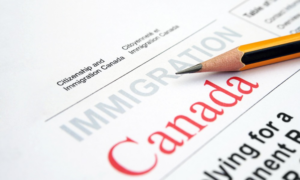
When the Honourable Marco E. L. Mendicino, P. C., M. P., the Minister of Immigration, Refugees and Citizenship tabled the 2019 Annual Report to Parliament on Immigration, he had expected that Canada would welcome 341,000 new permanent residents in 2020, 351,000 in 2021, and 361,000 in 20221. The ongoing Covid-19 crisis will force the government to rethink these goals.
The Canadian immigration sector is being greatly impacted by the COVID-19 crisis as the virus continues to dictate the restrictions placed on the lives of Canadians and individuals all over the world that aspired to immigrate to Canada. In tune with the global lockdown on travel, the Liberal government instituted a shutdown of all “non-essential” travel into Canada, with exemptions made for Canadians returning and people working in essential services. The restrictions have remained in place since mid-March2.
For those that had not completed the immigration application process by March 18th, the permanent residence application process will be significantly delayed. This is a result of the months-long lockdown that is only now beginning to ease across Canada, and in particular, Ontario, where many of the applications are being processed. Moreover, the prioritization of repatriating Canadian citizens has also contributed to the extensive backlog of applications.
In order to adapt to the changing circumstances of COVID-19 and to prepare for the influx of applications that are expected as immigration reopens, Immigration, Refugees, and Citizenship Canada is in the process of transforming its application process. Changes that can be expected include virtual alternatives for in-person components of the application process as well as implementing physical distancing protocols where fit3.
The expected reduced rate of immigrants, including highly skilled new permanent residents, temporary workers, and international students, will negatively impact an already stunted economy4. As immigration application processing times are expected to increase, it will likely be difficult for the Government to be responsive to labour needs.
For the aspiring immigrant, immigration to Canada is desirable for career, family, and educational opportunities. Compared to many other countries, Canada remains a highly desirable destination for economic immigrants and people fleeing persecution, especially in light of Canada’s relatively successful response to the outbreak.
As Visa Application Centres and the Immigration Appeal Division gradually reopen over the coming weeks and months, new policies will be adapted to streamline immigration application processes and to open Canada’s door to the world.
To explore your options and get trusted advice for how to proceed with your immigration application, whether it is to inquire about a temporary permit or the sponsorship of a family member, contact OWS Law, where you will be assisted in your language of choice.
________________________________________________________________________________________________________________
Blog post written by Oshish Ungras our summer volunteer!
1 https://www.canada.ca/en/immigration-refugees-citizenship/corporate/publications-manuals/annual-report-parliament-immigration-2019.html#s6
2 “Coronavirus disease (COVID-19): Immigration applicants” from Government of Canada; Accessed at: https://www.canada.ca/en/immigration-refugees-citizenship/services/coronavirus-covid19/immigration-applicants.html
3 “Immigration application system set for massive revamp after COVID-19” from CP24; Accessed at: https://www.cp24.com/news/immigration-application-system-set-for-massive-revamp-after-covid-19-1.4980236
4 “COVID-19 restrictions could derail Canada’s immigration-fuelled growth strategy, RBC report warns” from National Post; Accessed at: https://nationalpost.com/news/politics/covid-19-restrictions-could-derail-canadas-immigration-fuelled-growth-strategy-rbc-report-warns
